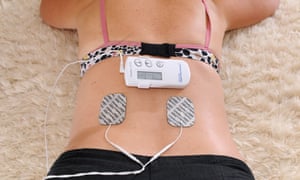The bitter truth about back pain: Drugs, And Scans Are only Temp Fixes See Solution Here
Back pain is a very uncomfortable situation you can be in and can prevent you from carrying out your normal activities and to make matters worse experts say treatment currently being provided is in most cases wrong and wasteful. Read on to see the possible keys to a solution.
The key is to try to keep walking and working, says the GP Ann Robinson
Back pain is the biggest cause of disability globally, and most of us will have at least one nasty bout of it. But treatment is often wasteful, wanton and wrong, according to a series of papers in the Lancet . Worldwide, overuse of inappropriate tests and treatments such as imaging, opioids and surgery means patients are not receiving the right care, and resources are wasted, it says.
Its perfectly understandable to want a quick-fix solution to make the pain go away and maybe a scan to set your mind at rest. But there isnt a reliable instant solution. Scans dont make you better, and painkillers can be harmful. The vast majority of low back pain is musculoskeletal caused by damage to ligaments, joints and muscles surrounding the spine. A tiny percentage is due to a serious or dangerous underlying cause that needs specific diagnosis and intervention such as cancer, infection or a fracture.
An underlying cause is more likely if you have so-called red-flag symptoms; previous or current diagnosis of cancer, fever, unexplained weight loss and sweats, night pain, pain in the middle of your back rather than lower, inability to stand, urinate or open your bowels, or severe and unremitting pain that is getting worse.
The good news is that if your backache is musculoskeletal and it usually is 90% of cases will be better within six weeks. And that is irrespective of what you do. Theres no good evidence that interventions, ranging from Tens machines (which use a mild electric current), acupuncture, physio, osteopathy and chiropractic to epidural injections and surgery, significantly affect the outcome. Prolonged bed rest still advocated in some countries is positively dangerous, as it can cause blood clotting (thrombosis) and makes recovery from back pain less likely.

Its tempting to want a scan or special investigations if you develop back pain. But scans dont correlate well with symptoms; you can have a dire-looking scan with no symptoms or a fairly normal-looking one with dreadful pain. A scan is useful for surgeons if you need an operation, and other imaging is important if an underlying fracture is suspected. If your back pain is associated with an underlying inflammatory condition like Crohns, ulcerative colitis or psoriasis, you will need investigation and referral to a rheumatologist.
The key to recovery is to try to keep walking and working. Different approaches help different people; its good to find the least risky option that suits you. My own favourite is a Tens machine: the evidence may not be great, but its cheap, safe, and happens to work for me.
Painkillers can be useful in the short term, if thats the only way you can keep moving. There are two main groups of effective painkillers, and they both come with health warnings: non-steroidal anti-inflammatories, (NSAID) such as ibuprofen, and opioids such as tramadol. There is already an epidemic of opioid overuse and addiction in the US, with Europe and lower-income countries catching up fast. NSAIDs are less addictive but can cause heart, kidney and gut damage if used for more than a few days at a time.
Prof Nadine Foster of Keele University, one of the authors of this series of papers, says: In many countries, painkillers that have limited positive effect are routinely prescribed for low back pain, with very little emphasis on interventions that are evidence-based, such as exercises. As lower-income countries respond to this rapidly rising cause of disability, it is critical that they avoid the waste that these misguided practices entail.
One in three people who has an episode of low back pain will have a recurrence in the following year. So it is important to look at adaptations to the workplace, avoiding heavy lifting and concentrate on core muscle strengthening with pilates, swimming and some types of yoga once you recover from the acute attack.
Prof Jan Hartvigsen, of the University of Southern Denmark, who also contributed to the Lancet series, says: Millions of people across the world are getting the wrong care for low back pain. Protection of the public from unproven or harmful approaches to managing low back pain requires that governments and health-care leaders tackle entrenched and counterproductive reimbursement strategies, vested interests, and financial and professional incentives that maintain the status quo … Funders should pay only for high-value care, stop funding ineffective or harmful tests and treatments, and importantly intensify research into prevention, better tests and better treatments.
Hes right, of course, but there is no point withdrawing funding without any explanation. Healthcare professionals need to take the time to explain to patients that its not vindictive cost-cutting that is behind the restriction of access to scans and drugs. Its in everyones best interests that we stop pursuing bad medicine and invest in finding better and safer solutions to this global problem, which is likely to affect all of us sooner or later.
Ann Robinson is a GP
Read more: https://www.theguardian.com/commentisfree/2018/mar/22/back-pain-drugs-scans-fixes-treatment-lancet

